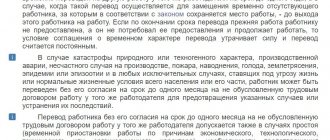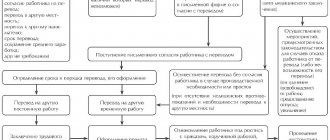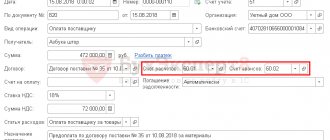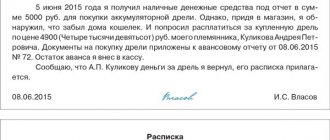Home / Labor Law / Employment / Hiring
Back
Published: 06/21/2016
Reading time: 11 min
0
970
The procedure for employing an employee is accompanied by the need to complete many documents. Some of them, approved by law, are provided by the employee himself, the rest must be prepared by the employer.
It is worth considering in more detail what stages the procedure for employing an employee consists of, what documents he must provide, and also what the responsibilities of the future manager are.
- Legislation
- Preparatory stage: necessary documents and their verification
- Main stage: interviewing and concluding an employment contract
- Final stage: paperwork and permission to work Issue an order for employment
- Make an entry in the work book
- Familiarize the employee with regulations
- Issue a personal card for the employee
- Create a personal file
- Conduct the necessary instructions
Stage one - job application
So, after a successful interview, it was decided to hire the person. The first thing a future employee must do is write an application. It is submitted to the head of the organization. The document is written in free form by hand. For convenience, you can print ready-made forms. The text should be something like this:
“To the General Director of LLC Ivanov and Partners, Ivanov Ivan Ivanovich, from Petrov Petrovich.
Statement
Please hire me for the position of sales manager.”
Date, signature.
The employment application is signed by the manager or his deputies authorized to hire employees . In addition to the visa, the director must indicate his consent - write “I don’t object”, “I agree” or something similar.
Stage two - medical examination
It's not for everyone. The Government of the Russian Federation has developed a list of professions for which medical examinations are mandatory . These are workers engaged in hazardous working conditions, doctors, rotation workers. In relation to an online store, a medical examination must be carried out by office employees who work with a computer more than 50% of the time and sales workers - for example, sellers of goods delivery points, as well as couriers.
If you have an online food store or delivery of fast food - sushi, rolls and hamburgers, then employees who are involved in working with food also need a medical book . And minors undergo medical examinations, regardless of their profession - everything.
To undergo a medical examination, you must give the future employee a referral. There is no approved form for it, but there is a list of requirements for this document. According to the order of the Ministry of Social Development No. 302n, the following must be indicated in the direction:
- name of the organization indicating the form of ownership (IE or LLC);
- activity codes according to OKVED;
- name of the medical institution to which the employee is sent;
- Full name of the employee and job title;
- indication of the department (sales department, accounting department, etc.);
- list of harmful factors.
Based on the information specified in the referral for examination, doctors will decide which specialists the applicant should undergo and which tests to take. After successfully passing the examination, the employee is given a certificate with a conclusion about suitability for work.
Note. Russian legislation has the concept of “Special assessment of working conditions” . Any entrepreneur is obliged to invite a specialized organization to examine all workplaces and give an opinion on the state of workplaces and the specifics of activity. It is on the basis of this conclusion that it is decided whether employees need medical examinations or not.
Legislation
The procedure for registering an employee for work is enshrined in the Labor Code, namely in Art. 68 of this regulatory document. In addition, there are several separate laws that address this issue. In particular, these include:
- Federal Law “On the legal status of foreign citizens in the Russian Federation”;
- Federal Law “On the State Civil Service of the Russian Federation”;
- Federal Law “On Military Duty and Military Service”.
The provisions of some other documents may also be taken into account: Government resolutions, orders and directives, Presidential decrees, etc.
Stage three - employment order
The employee returned to you with a medical certificate confirming his suitability for work. Now it's up to you. The first thing you must do as an employer is issue a hiring order. This is the main document for employment. On its basis, an employment contract is concluded, which we will talk about in due course.
The order indicates the name of the organization, full name of the head, and the serial number of the document. The text is as follows:
“Recruit Ivan Ivanovich Ivanov for the position of sales manager from such and such a date”
Date, signature.
The employee is introduced to the employment order under his personal signature. The order is recorded in the order log. A medical examination certificate and a job application are attached to it - this will be the employee’s personal file.
Familiarization of the employee with local regulations
Before concluding an employment contract, the employee must be familiarized with local regulations. These documents are developed by the employer independently, taking into account the direction of his activities. Familiarization with some of them is mandatory, with others only if they are available in the organization.
Documents required for review:
- Internal labor regulations.
- Rules and instructions for labor protection.
- Regulations on remuneration (if the specified section is included in the internal labor regulations).
- Rules for storing and using personal data of employees.
Documents that are required to be reviewed only if they are available in the organization:
- Job description.
If the employment contract does not contain a list of the duties performed by the employee, they are specified in the job description, which is, in turn, an integral part of the contract. There is no unified form of this document - it is developed by the employer independently and is its internal local document.
Note
: if the job description is not signed by the employee, then penalties cannot be applied to him for failure to fulfill the duties specified in the instructions.
- Provision on financial liability.
- Regulations on document flow.
- Collective agreement.
- Regulations on social security of workers.
- Other documents developed by the organization.
After the employee has been familiarized with local regulations, he must sign the familiarization sheet, after which the sheet is stitched with the act, numbered and sealed and signed by the official.
note
, that a law will soon come into force that will simplify personnel records for micro-enterprises; in particular, these employers will be able not to adopt local regulations, and also not to enter information about work in the employee’s work book. Currently, the law has been signed by the President of the Russian Federation, and its official publication is expected (after which it will come into force 180 days later).
Stage five - making an entry in the work book
If the employee already has a completed work report, you just need to make a new entry there. This is done by the HR inspector or an authorized person. This could be the individual entrepreneur himself. The entry is extremely simple:
“Hired at XXX LLC for the position of sales manager in the sales department from such and such a day of such and such a month on the basis of order No. 1.”
Date, signature of the inspector or official, seal of the organization. Or HR department, if you have one.
This is if labor exists. If an employee gets a job for the first time and does not have a work book, one must be created. Labor papers are sold in any bookstore or office supply store. The employee must purchase it and bring it to you. And you, in turn, fill out the title page. There is a minimum of data - the employee’s full name, his education and profession, date of birth, date of filling out the book and signature of the person in charge. This is usually a human resources inspector or an authorized employee. In the case of an individual entrepreneur - the individual entrepreneur himself.
The first page must be filled out in legible handwriting, without blots or corrections. This document will remain with the employee for life and will be needed when applying for a pension. The organization's seal is also placed on the title page.
Responsibility for failure to register labor relations
The employer must be prepared for the fact that in the event of improper and untimely registration of labor relations, he will have to answer before the law. Employers are subject to both administrative and criminal liability.
Responsibility for the subject is divided into two types:
- Responsibility of an official (a number of employees for whom official registration of employees is a direct job responsibility). They are responsible to the management of the enterprise; sanctions are not provided for by law.
- Responsibility of an employer in the status of a legal entity.
Administrative liability arises if the employer evades drawing up an employment contract with an employee or concludes it improperly.
This situation implies the imposition of the following fines:
- for persons carrying out entrepreneurial activities without forming a legal entity - from 5 to 10 thousand rubles;
- for legal entities - from 50 to 100 tr.
If this is not the first such violation, the amount of fines increases significantly. If the work activity of an unregistered employee continues for a long time, the employer faces criminal liability for evasion of taxes and fees (Article 199.1 of the Criminal Code of the Russian Federation). In this case, the offenders face a fine of up to 300 thousand rubles. or imprisonment with a possible ban on further activities in this area.
It should be remembered that the employer is also responsible for the exploitation of foreign citizens as employees without concluding an employment contract. In this case, the fine can reach 1 million.
We notify the state about the status of the employer and begin paying contributions
First, let's digress a little and think about the global. Our country has pensions, health insurance and other benefits from the state. There are special funds for this . It is from there that the state takes funds for old-age pensions, treatment and rehabilitation of occupational diseases and other needs.
When you become an employer, you are required to contribute money to all these funds . This is the basis of the social well-being of the population. Let's briefly explain how it works:
- Tax Inspectorate. Collects taxes - both yours and your workers'. You pay tax on profits, employees - personal income tax - personal income tax. The money goes to maintaining the state apparatus, paying doctors, teachers, police, and so on.
- Pension Fund of Russia - PFR. Accumulates money to pay old-age pensions.
- Social Insurance Fund - FSS. The fund pays for the treatment of injuries after industrial accidents, occupational diseases, and sanatorium-resort treatment.
In 2021, you only need to file one notification—to Social Security. There is no need to report anything to the pension and tax authorities: they will find out everything themselves from the first quarterly reports.
Once notices are submitted, you begin paying fees. Taxes and pension contributions are paid to the Federal Tax Service, insurance contributions to the social insurance fund. Since pension contributions are controlled by the tax office and not by the pension fund, contributions must be reported to the latter. And monthly. If you have paid your insurance premiums to the tax office, you submit a notification of payment to the Pension Fund. And so - every month.
Let's summarize. In order to avoid problems with government agencies, you must pay insurance, pension contributions and taxes for each employee . To do this, you need to submit a notification to the social insurance fund. This is given 30 days after the employee is hired. After this, make transfers to the tax and Social Insurance Fund, and send monthly reports on payment of contributions to the pension fund.
Legislative regulation
Legislative requirements in the field of labor protection establish that all
When hired or transferred to another job, employees must undergo mandatory training. In particular, this provision is contained in Art. 18 Federal Law-181 “On the fundamentals of labor protection in the Russian Federation”, as well as in Part 2 of Art. 225 Labor Code of the Russian Federation.
The procedure and features of this procedure depend on the specific type of instruction. The legislation provides for the following types:
- introductory;
- primary;
- repeated;
- unscheduled;
- target.
They are established by such a legislative act as Resolution of the Ministry of Labor and Ministry of Education No. 1/29 of January 13, 2003. Another document that regulates the conduct of briefings is GOST 12.0.004-90 “Organization of occupational safety training. General provisions." The reasons and features of each of them are worth considering in more detail.
Civil contract
It happens that you need to hire employees for one-time work. For example, your office needs some cosmetic renovation. It is necessary to re-stick the wallpaper, paint the walls, replace the plumbing and tiles in the restroom. Don’t hire plumbers, plasterers and painters for this! This is where a civil contract comes to the rescue. Such an agreement is drawn up for one-time work. A classic example of a civil law contract is a work contract. You act as a customer, and the performer acts as a contractor. The document specifies the type and volume of work, the timing of its completion and payment terms. After completing the order, the parties sign the acceptance certificate for the work performed and financial documents, after which they part with the world.
What to do if workers are needed from time to time?
Let's imagine the situation. You have a small online store and use a single tax on imputed income - UTII. The tax return in this mode is submitted once a quarter. But you don’t want to fill it out yourself and don’t know how – it’s better to hire a qualified accountant for these purposes.
As in the case of office renovation, it is not profitable to hire a specialist to fill out one single piece of paper every 3 months and take it to the tax office. Therefore, the best option in this situation is an outsourcing or agency labor agreement . It looks like this. A certain organization employs a full-time accountant. You agree with its manager that once a quarter he provides you with an accountant to prepare and submit reports. And you enter into an appropriate agreement. This will be the outsourcing agreement.
The bitter truth of life instead of a conclusion
Now let's count. Do you know what fine an individual entrepreneur faces if he does not register his employees as required? From 5 thousand rubles. Without going into mathematics, approximately the same amount of contributions to the funds must be paid for each employee every month. And this is at the minimum wage.
It would seem that it is easier for entrepreneurs to pay fines than to register their employees legally. But this is all due to ignorance of the laws. Upon closer examination, it turns out that by paying all the required fees, you only save . For example, sick leave can be paid not from your own pocket, but from the social insurance fund. And for insurance deductions it is quite possible to save on taxes. We will definitely teach you this in future articles. In the meantime, register your employees as expected and sleep well !










